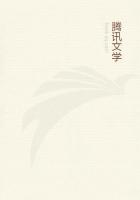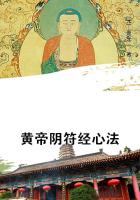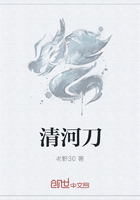Men and women seek variety, they seek excitement in any and all directions, they want relief from the tyranny of purpose and of care. But also,--they hate a vacuum, they can usually bear themselves and their thoughts for only a little while, because their thoughts are often basicly melancholy and full of dissatisfaction. So they seek escape from themselves; they try to kill time; reading, playing and going to entertainments. In fact, most of our reading is actuated by the play spirit, and is an effort to obtain excitement through the lives of others.
Humor[1] is a form of pleasure seeking and giving, but depends on a certain technique, the object of which is to elicit the laugh or its equivalent. The laugh is a discharge of tension, and while usually it accompanies pleasure, it may indicate the tension of embarrassment or even complex emotional states. But the laugh or smile of humor has to be elicited in certain ways, chief of which are to bring about a feeling of expectation, and by some novel arrangement of words, to send the mind on a voyage of discovery which suddenly ends with a burst of pleasure when the "point" is seen. The pleasure felt in humor arises from the feeling of novelty, the pleasure of discovering a hidden meaning and the pleasure in the "point" or motive of the story, joke or conduct.
[1] I use this term to include wit, satire and even certain phases of the comic.
Usually, the humorous pleasure has these motives: it points at the folly and absurdity of other people's conduct, thought, logic and customs. It gives a feeling of superiority, and that is why all races love to poke fun at other races: certain characteristics of Jew, Irishman, Yankee, Scot, etc., are presented in novel and striking fashion, in a playful manner.
It points out the weak and absurd side of people and institutions with which we have trouble; and this brings in marriage, business, mothers-in-law, creditors, debtors, as those whose weakness is exposed by the technique of humor.
Humor likes to explode pretension, pedantry, dignity, pomposity; we get a feeling of joy whenever those who are superior come a cropper, which is increased when we feel that they have no right to their places. So the humorous technique deals with the get-rich-quick folk, the foolish nobleman, the politician, the priest (especially in the Middle Ages), etc.
Not only does humor seek to obtain pleasure from an attack on others and thus to feel superior or to compensate for inferiority, but also it reaches its highest form in exposing man himself, including the humorist. The humorist, seeking his own weaknesses and contradictions, his falsities, strips the disguise from himself in some surprising way. Bergson points out that to strip away a disguise is naturely humorous unless it reveals too rudely the horrible. The humorist takes off the mask from himself and others, and in so far as we can detach ourselves from pride and vanity, we laugh. The one who cannot thus detach himself is "hurt" by humor; the one who somehow has become a spectator of his own strivings can laugh at himself. Thus humor, in addition to becoming a compensation and a form of entertainment, is a form of self-revelation and self-understanding carried on by a peculiar technique. On the whole this technique depends upon a hiding of the real meaning of the story or situation under a disguise of the commonplace. The humorist phrases his words or develops his situation so as to send the thoughts of the listener flying in several directions. There is a brief confusion, an incongruity is felt, then suddenly from under a disguise the point becomes clear and the laugh is in part one of triumph, in part one of pleased surprise.
I shall not attempt an analysis of the psychology of humor, for illustrious writers and thinkers have stubbed their intellectual toes on this rock for centuries. In later years the analyses of Freud and Bergson are noted, but there is a list of writers from Aristotle down whose remarks and observations have brought out clearly certain trends. For us the direction that any one's humor takes is a very important phase in the study of character.
Humor is a weapon, and the humorist has two ends in view: the one to please his audience and to align them on his side, the second to attack either playfully or seriously some person or institution with the technique of humor. Certain trends are seen in humor, one to seek a feeling of superiority by revealing the inferiority of others in a surprising way, another to release a burdensome[1] inhibition, a third to play with and in a sense mock the disagreeable features of life, and the fourth to seek detachment from one's self, to seek relief from sorrow, disappointment and deprivation by viewing the self as from afar.
[1] In this way humor is an effort for *******; through humor one tastes of experiences otherwise forbidden.
So there is a sarcastic humor which points out the foibles and weaknesses of others either grossly or delicately. Usually these others are those differing from one's own group--the Irish, Jew, farmer, Negro--and the jokes either deal with their personal appearance (a low humor) or their characteristic expressions, points of view and actions. The audience is convulsed at their quaintness or folly, though often enough on the stage the comic figure delivers a sort of wisdom mingled with his foolishness, and this adds to the humorous explosion. The sarcastic humor in its highest form reaches satire, where under a disguise powerful institutions or the habit and ways of life of a group are criticized. In polite society people are continually attacking each other in a kind of warfare called repartee, in which the tension is kept just without the bounds of real hostility, while the audience sides with the one whose shaft is the most telling.

